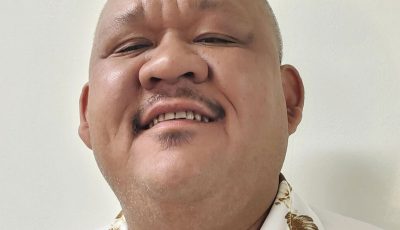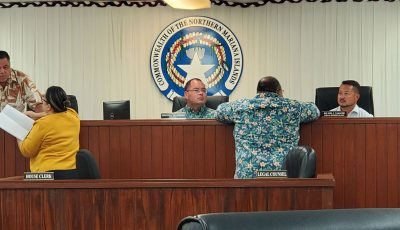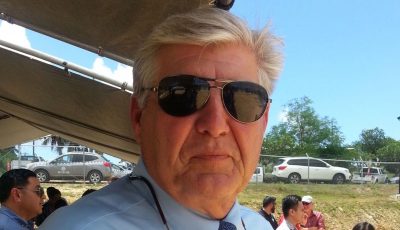Speaker agrees with PSS on gen. revenue
House Speaker Rafael S. Demapan (R-Saipan) claims the legality and morality of him signing the Public School System certified question petition prevents him from co-signing it, even as PSS threatens a lawsuit.
In a lengthy four-page statement, the House speaker states that he believes the definition of “general revenue,” as disputed between the CNMI Legislature and PSS during annual budget talks, should include revenue before annual earmarks, or funds set aside by statutory law prior to calculating the amount available for annual appropriations.
Because of this belief, he said in his statement, it is illegal and immoral to join the certified question as a disputing party.
“As set forth in the Rule 11 and Rule 14 of the Supreme Court rules, there needs to be a legitimate dispute between two public officials that relates to the exercise of their duties,” Demapan stated, referring to the two rules of the Supreme Court regarding disputes and elected officials. “So far as I can honestly tell, my position and the Board of Education’s position are not in conflict on the issue of what constitutes the ‘general revenue’ of the CNMI.”
Demapan believes that if he were to disagree or dispute the position, he would be disagreeing with the opinion from the attorney general, which recognizes “general funds” by excluding prior earmarks.
“When funds are separated from the ‘general revenues,’ then the amounts that would otherwise be available to fund our children’s educations are reduced accordingly,” he said.
PSS already ‘conceded’
Demapan further stated that in a way, PSS has already conceded with receiving the net total of CNMI general revenues post-earmarks.
He said that assuming two qualified parties proceeded with the certified question, one side would need to dispute the legality of the earmarks while the other would need to support them.
“The problem that would arise at this point, however, is that PSS agrees that ‘proper earmarks’ could be and should be deducted before PSS gets its 25 percent share. In other words, PSS already conceded that they should be given the ‘net,’ not ‘gross’ [amount of general revenues after earmark reductions],” he said.
“…If PSS takes the position that ‘proper earmarks’ are legally constitutional and properly excluded from the computation of ‘general revenues,’ then to create a dispute, I must take on the position that ‘general revenues’ as defined by the ‘Annual Commonwealth Government Financial Statements’ and as set forth in audited financial statement, are all-inclusive and that the earmarks created by the Legislature are legally deficient,” he continued, adding that he is not “prepared” to take on the position since he is the House speaker of the Legislature, which created the special funds which are annually earmarked.
“I cannot in good faith take the position that all of the earmarks that have been passed by the Legislature are somehow improper on the one hand while I continue to create these earmarks for various well-deserving beneficiaries on other,” he said.
Both PSS and BOE approached the Legislature for clarity on the definition of “general funds” pertaining to their annual appropriations annually for several years.
BOE gave the go signal for filing a certified question petition defining “general revenue” since they believe that the amount of funds available before earmarks should be included in the 25 percent minimum annual appropriation for PSS, which is a mandate of the CNMI Constitution.



























